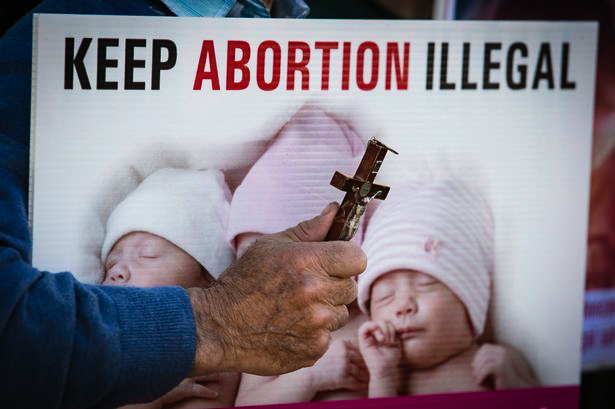BY: AOIFE RYAN
“We may be twenty-five year old, independent working women, but if I had an unplanned pregnancy now, I’d react the same as if I was sixteen. I hate to admit it but my immediate reaction would be one based on shame that’s not really mine, but my family’s and how everyone else would think of me.” This opinion of Maire’s* was shared by many of my female friends while we chatted casually about pregnancy and sex outside a long-term relationship.
It’s 2014, and the sexual liberation of women—at least in the western world—was heralded decades ago with the proliferation of birth control in the 1960s, the option of abortion in many countries across the world and the increase of women in the workforce. Yes, we have moved forward with great bounds in terms of the legal emancipation of women, but in many countries such as my own home, Ireland, the social constructions fortified generations back are still in place. It is as if we have been told by a higher voice that we can move forward, but we are reluctant ourselves to take that step.
Even in the modern capital of Dublin, our sexual mores are still molded to a degree by our long historical battle with religion, given that the Catholic Church was the unspoken head of state in many ways up until the late 90s. To call Ireland a theocracy just a few decades ago would not have been entirely incorrect. However, now with the recent sex scandals relating to the church—such as in 2010 when Cardinal Seán Brady admitted to participation in the cover-up on behalf of Father Smyth by pressuring child victims to sign an oath of silence— coupled with a larger landing of immigration than previously experienced, the Irish are moving away from formal religion en masse (excuse the pun).
READ ALSO: Growing Up Gay In A Military Family
As another female friend in her mid-twenties, Aine* pointed out, “I don’t even believe in organized religion, and yet I guess I follow some of its edicts, especially when I’m home with my family, who don’t even believe it either! Like I live with my boyfriend and yet when I go home with him, it’s an unspoken rule he stays in a separate bedroom […] and when I was single I would enjoy the occasional casual fling but there was always the feeling deep down that I was doing something wrong. I was slut shaming myself”.
Aside from the two major events of immigration and sex scandals, and the growing distance from the paternal hand of the church, why do so many young Irish people give credence to the burden of sexual sin? With many of same lifestyle choices of other western and English-speaking countries such as Canada, Britain and America, is that seed of doubt still rooted in many of us that births sexual uncertainty? Certainly, anthropologist Scheper-Hughes believes we are “troubled by sexuality”.

Yet even in these restricted times, connections to North America and Britain thrived, on the basis of shared beliefs to a degree. How’s that now? If ever in doubt of a connection between North America and Ireland, think of comedian Tommy Tiernan’s ever so self-deprecating and wholly true quip, that rather than invade a country, the Irish slowly infest it. Wherever you live, trust me, we are there. On the one hand this means we have swallowed other belief systems, other cultures and exported them home. On the other, the worst of our beliefs have been wound into the very fabric of far-flung communities. What is the total weight of catholic guilt that impregnates you, regardless of your background?
The demand for unrestricted lifestyle choices is still to be completely met by the law in the land of “saints and scholars”, abortion still illegal, leaving those who desperately want one by any means necessary to secretively travel most commonly to Britain. Gay marriage has also not been legalized despite frequent referendums and mass uproar. Only straight men have neither hang-ups nor legislation against their body and its sexuality.
Rory O’Neill AKA Panti, a drag Queen and gay rights activist based in Dublin, gave an overwhelmingly revealing speech on his experiences with homophobia and self-hate recently that trended on social media. Despite saying he always found work in his “chosen field of gender discombobulation”, he also expresses the “oppressive” need to “check myself to find out what gave the gay away” when strangers verbally abused him on the street for being gay, or the oppression of “a reasoned debate on what rights you deserve or don’t deserve” follows your identity in all aspects of media. This inhibiting need to check oneself is something that could be labeled inherently Irish, in that it has become virtually traditional to repress, perhaps far less than a few decades ago, but nonetheless it has not vanished. But are we the only ones caught up in this sexual tangle of feeling so close to complete liberation and having a biased Jiminy Cricket on our shoulder? Just like everything else Irish, it’s most likely been exported to somewhere near you.
*Name Changed For Anonymity





